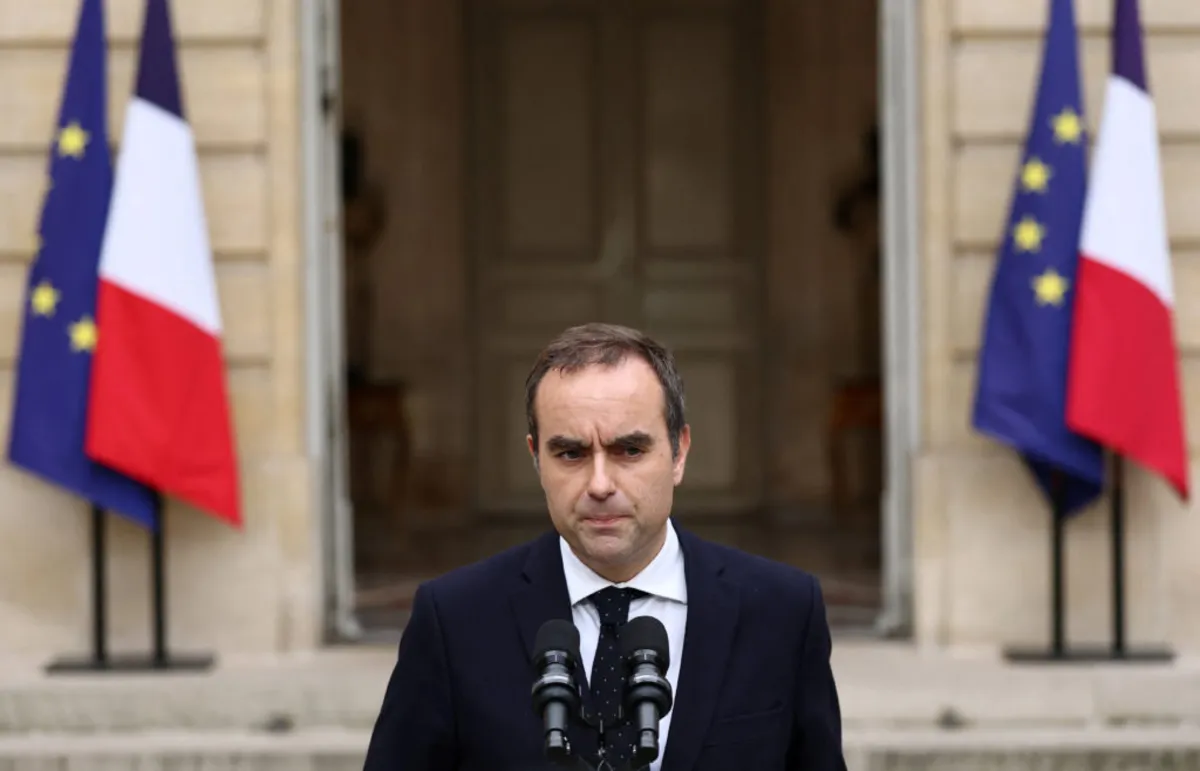
In a surprising turn of events, France's new Prime Minister Sébastien Lecornu resigned less than a month after taking office. This decision came just 24 hours after he announced a new government, which led to a key coalition ally withdrawing its support. The sudden resignation has plunged the nation into a significant political crisis, leaving French President Emmanuel Macron with limited options moving forward.
The French presidency confirmed on Monday that Macron had accepted Lecornu's resignation. This marks a troubling chapter for Macron, who is currently experiencing record-low approval ratings in opinion polls. Lecornu's resignation is particularly noteworthy as he has become the shortest-serving prime minister in the history of the Fifth Republic, which was established in 1958.
French politics have been characterized by instability ever since Macron called for snap elections last year, resulting in a fragmented legislature and a political deadlock. The National Assembly is currently divided, with far-right and left-wing lawmakers holding over 320 seats, while centrists and allied conservatives occupy 210 seats. This fragmentation has left no party with an overall majority, complicating governance.
Despite weeks of efforts to garner sufficient support to avert a no-confidence vote, Lecornu was forced out just hours after forming his Cabinet on Sunday. His downfall was largely attributed to losing the backing of conservatives with 50 seats in the assembly, who objected to his choice for defense minister. As a result, Lecornu's government will remain in a caretaker role until a new prime minister and Cabinet are appointed.
The resignation leaves Macron with two critical options: appoint a new head of government or dissolve the National Assembly and call for early legislative elections. Lecornu, a loyal ally of Macron, stated that the conditions for him to continue in office were no longer viable after failing to build a consensus. He expressed hope that the new government could have succeeded with more cooperation from coalition partners, particularly targeting Bruno Retailleau, the head of the conservatives.
With less than two years until the next presidential election, Macron's opponents are quick to seize on this unexpected resignation. The far-right National Rally has called for Macron to consider either new snap parliamentary elections or his own resignation. Marine Le Pen, the leader of the National Rally, emphasized the need for a return to the polls, stating, “We have reached the end of the road.”
Meanwhile, voices from the far-left party France Unbowed are also calling for Macron's departure, while some left-wing factions are advocating for a revival of a coalition comprising leftists, socialists, greens, and communists.
The resignation has sent shockwaves through the financial markets, resulting in a significant drop in the CAC-40 index of leading French companies, which plunged nearly 2% following the announcement. While the index later recovered some losses, the initial reaction highlighted investor anxiety regarding the political climate.
Ministers appointed just the night before Lecornu's resignation found themselves in the unusual position of serving as caretaker ministers, tasked only with managing day-to-day affairs until a new government is formed. Agnès Pannier-Runacher, reappointed as the minister for ecology, expressed her frustration on social media, stating, “I despair of this circus.”
Lecornu’s choice of ministers faced criticism across the political spectrum, particularly his decision to reappoint former Finance Minister Bruno Le Maire to the defense ministry. Critics argued that under Le Maire's tenure, France’s public deficit had significantly increased. Lecornu's primary responsibility was to navigate a budget amid a looming debt crisis, with France’s public debt reaching an alarming 3.346 trillion euros ($3.9 trillion), equating to 114% of its GDP.
Although Lecornu's government has faced turbulence, other key positions largely remained unchanged. Retailleau continues as interior minister, while Jean-Noël Barrot retains his role as foreign minister and Gérald Darmanin remains in charge of justice. Despite voicing dissatisfaction with Lecornu’s Cabinet composition, Retailleau distanced himself from responsibility for Lecornu's resignation, citing issues of trust regarding ministerial appointments.
In an effort to seek consensus at the National Assembly, Lecornu had consulted with various political forces and trade unions before finalizing his Cabinet. He had also pledged to avoid employing special constitutional powers previously used to push budgets through Parliament without a vote, aiming instead for compromise with lawmakers across the political divide.
The future of France’s political landscape remains uncertain as Macron must now navigate this crisis and determine the best course of action for governance and national stability.